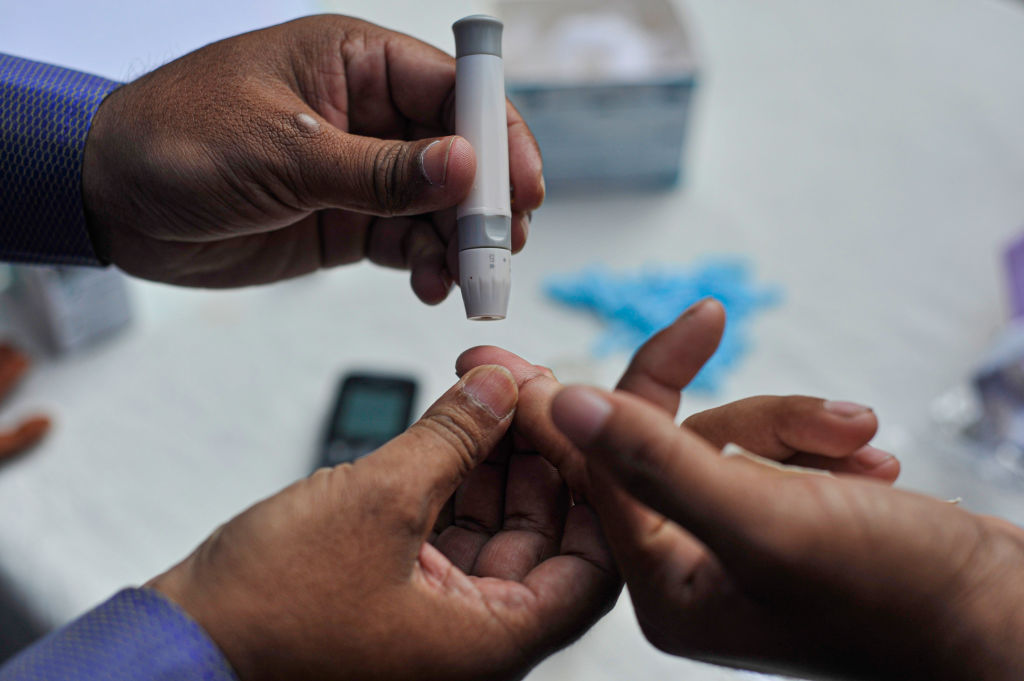
Global aging and rising body weight will more than double the number of people with diabetes by 2050, researchers predicted, putting millions more people at risk of a variety of dangerous disorders.
More than 1.3 billion people worldwide will have diabetes at the half-century mark, up from 529 million in 2021, according to estimates released Thursday by the Lancet medical journal. The vast majority of patients will have type 2 diabetes, the form of the disease that’s often linked to being overweight.
A loss of the body’s ability to control blood sugar levels, diabetes affects one in 10 adults globally and caused 6.7 million deaths in 2021, the International Diabetes Federation estimates. The disease has unequal impacts, with fewer than 10% of people affected in low and middle-income countries receiving proper care, the Lancet researchers note.
“If we don’t do anything,” said Kanyin Liane Ong, a researcher at the University of Washington’s Institute for Health Metrics and Evaluation and the lead author of the study, “it will cause a huge burden.”
Type 2 diabetes is the most common form of the disease, accounting for about 96% of cases. It occurs when the body’s cells stop responding properly to insulin, which can lead to chronic high blood-sugar levels that leave patients vulnerable to heart, kidney, eye and nerve damage. Although preventable in many cases, usually with weight loss, and treatable with a variety of effective drugs, rates of the disease remain stubbornly high.
More from TIME
Read More: People With Diabetes Are More Vulnerable to Heart Disease. How to Reduce the Risk
Effective weight-loss programs have proven hard to implement at large scale, and many health-care systems are not prepared to intervene in diabetes early, the researchers note. And while drugs such as those in the GLP-1 class made by Novo Nordisk A/S and Eli Lilly & Co. have shown promising weight-loss results, costs put them out of reach for many patients globally, the authors said, and they haven’t been used widely enough yet to determine whether they can turn the tide.
Addressing racism and economic inequality will be important for controlling diabetes, a group of researchers from the US, Africa, India and Australia, wrote in a separate article in the same journal. People in low- and middle-income countries are more likely to suffer from the disease and its impacts, as are minority groups.
There isn’t one perfect solution, Ong said.
“Diabetes will always exist, and I think it is about managing and monitoring and identifying it early on,” she said.
More Must-Reads From TIME
- The 100 Most Influential People of 2024
- Coco Gauff Is Playing for Herself Now
- Scenes From Pro-Palestinian Encampments Across U.S. Universities
- 6 Compliments That Land Every Time
- If You're Dating Right Now , You're Brave: Column
- The AI That Could Heal a Divided Internet
- Fallout Is a Brilliant Model for the Future of Video Game Adaptations
- Want Weekly Recs on What to Watch, Read, and More? Sign Up for Worth Your Time
Contact us at letters@time.com